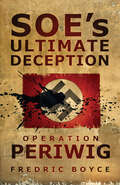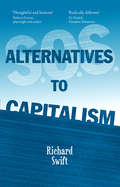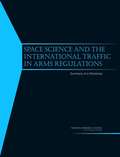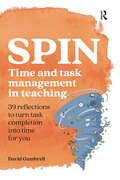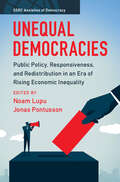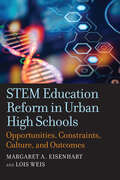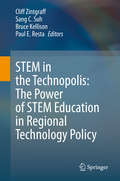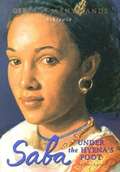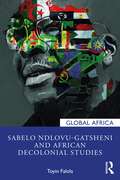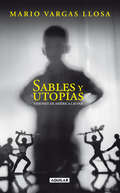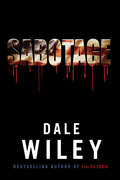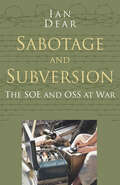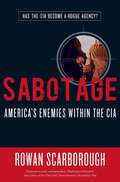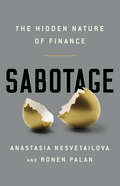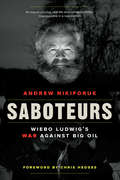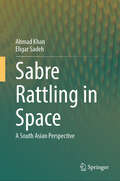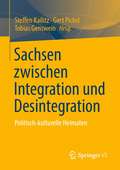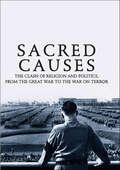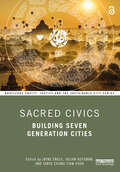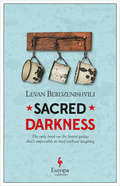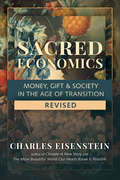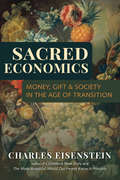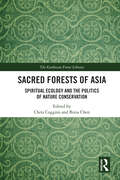- Table View
- List View
SOE's Ultimate Deception: Operation Periwig
by Fredric BoyceIn the closing months of the Second World War, General Eisenhower exhorted the Western Allied forces to redouble their efforts to break the German will to resist. In considering this appeal, General Gubbins, whose Special Operations Executive was making a significant contribution to the liberation of occupied territory, was faced with a fundamental difficulty in the case of Germany. Although opposition to Nazism was present in some areas, it was neither organised nor pro-Allied. Then someone had the idea of creating an entirely fictional German resistance movement and 'selling it' to the Nazi security authorities. From January until April 1945, SOE rained propaganda leaflets on the hapless population fleeing the ruins of their cities and the oncoming Allied ground forces; they broadcast messages to the 'resistance'; they planted the most scandalous lies about eminent Nazis; and at the end they even dropped four agents on fictitious missions. This imaginative response to Ike's exhortation and the sheer audacity of the operation itself demand to be told to a wider audience.
SOS: Alternatives to Capitalism
by Richard SwiftFinancial collapse and crisis; disgust at bankers’ greed; the devastating effects of yawning inequality: all these and more have led to widespread dissatisfaction and disenchantment with capitalism. People are crying out for an alternative but are continually told that one does not exist. In this fully updated new edition Richard Swift examines the past shortcomings and present health of not one but many other paths to changing the world, including socialism, social democracy, anarchism, ecology, and degrowth. Combining the practical with the visionary, he shows that finding alternatives to capitalism is no longer an academic issue for the left – it is an urgent planetary necessity.
SPACE SCIENCE AND THE INTERNATIONAL TRAFFIC IN ARMS REGULATIONS: Summary of a Workshop
by National Research Council of the National AcademiesITAR, which controls defense trade, includes the U.S. Munitions List (USML) which specifies categories of defense articles and services covered by the regulations. In 1999, space satellites were added to the USML. In 2002 ITAR was amended to exclude U.S. universities from having to obtain ITAR licenses when performing fundamental research involving foreign countries and/or persons. Despite this provision, there remains considerable uncertainty among university researchers about whether the regulations apply to their research leading to a rather conservative interpretation of the regulations and the imposition of burdens that might not be necessary. To explore this concern, NASA asked the NRC to organize a workshop of all stakeholders on the implications of ITAR for space science. This book presents a summary of the workshop discussions including those on perspectives on recent developments and implementation of ITAR; overarching issues; problems arising from ITAR's implementation; and opportunities for near-term actions and improvements.
SPIN: Time and task management in teaching (Practical Teaching)
by David Gumbrell39 reflections to turn task completion into time for youYour time is precious – so use it well.With so many pulls on your time, and a changing environment, now more than ever it is vital that your time and task management is both targeted and efficient. If you can achieve this, you can allocate more time for yourself and so become a more relaxed and effective teacher. All too often to do list gets longer and longer which can impact on your enjoyment of the job and, more importantly, your mental health and well-being.Building on the strategies in his first two book, LIFT and RISK, David Gumbrell advocates that you need to focus your attention on giving the right plates a spin to save time, energy and attention that you can then allocate elsewhere. The 39 short, research-based chapters, punctuated with reflective questions, along with teacher interviews, together build into a significant body of knowledge to promote resilience and teacher retention.Praise for RISKA beautifully written book with David's characteristic use of rich metaphors and thoughtful narrative. This book will certainly help you make bolder and better decisions in the classroom and beyond. Adrian Bethune.
SSRC Anxieties of Democracy: Public Policy, Responsiveness, And Redistribution In An Era Of Rising Economic Inequality (Ssrc Anxieties Of Democracy Ser.)
by Jonas Pontusson Noam LupuSTEM Education Reform in Urban High Schools: Opportunities, Constraints, Culture, and Outcomes
by Lois Weis Margaret A. EisenhartSTEM Education Reform in Urban High Schools gives a nuanced view of the obstacles marginalized students face in STEM education—and explores how schools can better support STEM learners.Reporting the results of a nine-year ethnographic study, the book chronicles the outcomes of various STEM education reforms in eight public high schools with nonselective admissions policies and high proportions of low-income and minoritized students: four schools in Denver, Colorado, and four in Buffalo, New York.Margaret A. Eisenhart and Lois Weis follow the educational experiences of high-ability students from each school, tracking the students' high school-to-college-to-career trajectories. Through interviews with students, educators, and parents, as well as classroom and campus observations, the authors identify patterns in the educational paths of students who go on to great success in STEM occupations and those who do not. They discuss common mechanisms that undermine the stated goals of STEM programming—opportunity structures that are inequitable, erosion of program quality, and diversion of resources—as well as social and cultural constructs (the figured worlds of STEM) that exclude many minoritized students with potential for success from the STEM pipeline.On a broader scope, the book explores how and why STEM education reform efforts fail and succeed. With an eye toward greater access to STEM learning, the authors show how lessons of past measures can inform future STEM initiatives.
STEM in the Technopolis: The Power of STEM Education in Regional Technology Policy
by Sang C. Suh Cliff Zintgraff Bruce Kellison Paul E. RestaThis book addresses how forward-thinking local communities are integrating pre-college STEM education, STEM pedagogy, industry clusters, college programs, and local, state and national policies to improve educational experiences, drive local development, gain competitive advantage for the communities, and lead students to rewarding careers. This book consists of three sections: foundational principles, city/regional case studies from across the globe, and state and national context. The authors explore the hypothesis that when pre-college STEM education is integrated with city and regional development, regions can drive a virtuous cycle of education, economic development, and quality of life.Why should pre-college STEM education be included in regional technology policy? When local leaders talk about regional policy, they usually talk about how government, universities and industry should work together. This relationship is important, but what about the hundreds of millions of pre-college students, taught by tens of millions of teachers, supported by hundreds of thousands of volunteers, who deliver STEM education around the world? Leaders in the communities featured in STEM in the Technopolis have recognized the need to prepare students at an early age, and the power of real-world connections in the process. The authors advocate for this approach to be expanded. They describe how STEM pedagogy, priority industry clusters, cross-sector collaboration, and the local incarnations of global development challenges can be made to work together for the good of all citizens in local communities. This book will be of interest to government policymakers, school administrators, industry executives, and non-profit executives. The book will be useful as a reference to teachers, professors, industry professional volunteers, non-profit staff, and program leaders who are developing, running, or teaching in STEM programs or working to improve quality of life in their communities.
SWORDS INTO MARKET SHARES: Technology, Economics, and Security in the New Russia
by Glenn E. SchweitzerWhile researching this book, Glenn Schweitzer met four Moscow physicists who were trying to license Russian technology to western firms for product manufacture. During the worst times, they were reduced to driving taxis to keep things afloat. He asked them, will technological innovation have a discernible impact on the Russian economy in the coming decade? No, was the immediate reply. Are they right?In Swords into Market Shares, Schweitzer examines the roots of such pessimism and the prospects for Russia to prosper from its technology in the post-Soviet world. He explores the different visions of prosperity held by entrepreneurs, technologists, and government officials and goes on to examine the barriers to progress as Russia struggles to build a viable technology industry on its own terms. In accessible language, this book talks about technology's place within Russia's economy and its research and development infrastructure. Schweitzer looks at the impact of the Soviet legacy--central planning, lack of priorities, scant incentives for personal initiative--and the aftermath of the Russian financial meltdown of 1998.He also reviews the experiences of American companies that have invested in Russian technology and examines the results of pressure to reform according to the economic model of the West. Schweitzer goes on to document the problems of economic crime and government corruption, which plague activities designed to generate income in Russia. He discusses the lack of protection for intellectual property and taxation issues that stand in the way of technological innovation. The book looks at the impact of the "brain drain" as Russian experts seek greener pastures--not only the ominous recruitment of Russian biological weapons experts and the acquisition of military technology by "rogue" nations--but also Russia's own program to sell military technology for badly needed funds.Schweitzer's use of case studies and examples puts a human face on these issues. He also discusses Russia's 60 "science cities"--sites of state research centers--with close-ups of three "nuclear cities."Can the technical strengths of the Soviet military complex find a place in civilian Russia? How can this vast country sustain even a minimal standard of living? Swords into Market Shares addresses these and other key questions and explores fundamental policy issues confronting both Russia and the United States as Russia struggles for an economic foothold.
Saba: Under the Hyena’s Foot
by Jane KurtzAfter being kidnapped and brought to the emperor's palace in Gondar, Ethiopia, twelve-year-old Saba discovers that she and her brother are part of the emperor's desperate attempt to consolidate political power in 1846.
Sabelo Ndlovu-Gatsheni and African Decolonial Studies (Global Africa)
by Toyin FalolaThis book considers the work of the preeminent scholar on decoloniality, Sabelo Ndlovu-Gatsheni, as a means of examining the development of decoloniality discourse and considering the future direction of the African knowledge economy. Sabelo Ndlovu-Gatsheni has been instrumental in the construction of theories and ideas necessary for advancing a decolonial system of education and epistemology. This book considers how Professor Ndlovu-Gatsheni’s work has helped to shape our thinking both on Mugabe and the history of Zimbabwe, and beyond to the broader questions of race, liberation, higher education, and the future of decolonial studies. Renowned author Professor Toyin Falola then invites us to consider the dangers of continued repression of African epistemologies, and the enormous benefits of an alternative knowledge economy in which a diverse multiplicity of ideas drives our understanding of the world on to new heights. Unpacking the various conceptual leanings of decoloniality through the works of one of its leading lights, this book will be an essential read for researchers across the fields of African Studies, Race Studies, Philosophy, and Education.
Sables y utopías: Visiones de América Latina
by Mario Vargas Llosa¿Cuáles son los postulados liberales de Vargas Llosa? ¿Cuál es su posición ante la realidad latinoamericana? ¿Son los peligros y esperanzas que vislumbra para el continente? ¿Cómo han tomado forma sus ideas y compromisos? El recorrido intelectual de Mario Vargas Llosa. «La selección de ensayos que compone este volumen pretende aclarar estas cuestiones. En ellos, además de verse reflejado el recorrido intelectual del escritor, se analizan todos los grandes acontecimientos que han marcado la historia reciente de América Latina. No están ordenados cronológicamente sino por temas, ilustrando las batallas que Vargas Llosa ha dado por la libertad, desde su oposición frontal a las dictaduras, su ilusión y posterior desencanto con las revoluciones, sus críticas al nacionalismo, al populismo, al indigenismo y a la corrupción 'mayor amenaza para la credibilidad de las democracias', hasta el descubrimiento de las ideas liberales, su defensa irrestricta del sistema democrático y su pasión por la literatura y el arte latinoamericanos.»Carlos Granés
Sabotage
by Dale WileyEvery hour, explosions rock the United States.Without warning of where or when they will occur. Big cities, small towns, and rural back roads. Sinister messages appear on computer screens across America, and that message is clear.No one is safe…- Not disgraced FBI agent Grant, awaiting his call back to the big time;- Not rapper Pal Joey, an international sensation;- Not savvy beauty Caitlin, the ultimate “Sin City” party girl;- Not even Naseem, the would-be martyr who helped plan the attacks.An unhinged mastermind paralyzes a nation, and unlikely heroes must put aside their differences and forge an alliance to stop the attacks before the passing hours bring down a Nation.All roads lead to Las Vegas. Can four people, united only by their hatred of a common enemy stop … Sabotage?
Sabotage and Subversion: The SOE and OSS at War (Classic Histories Series)
by Ian DearDuring the Second World War daring and highly unusual missions were mounted by the Special Operations Executive (SOE) – formed on Churchill’s orders ‘to set Europe ablaze’ – and its American counterpart, the Office of Strategic Services (OSS). In sixteen separate chapters the author describes how the fearless individuals in these clandestine organisations were recruited, trained and armed, and examines some of their guerrilla operations in Europe, Africa and the Far East, such as the raid on Fernando Po, the destruction of the Gorgopotamos Bridge in Greece and the strike against Japanese shipping in Singapore harbour. Also covered are the means SOE and OSS used to subvert the enemy, by employing black propaganda, forgery, pornography and black market currency manipulation. It may well read like fiction but the stories are fact, and shows to what lengths the Allies were prepared to go to crush the Axis powers.
Sabotage: America's Enemies within the CIA
by Rowan ScarboroughHow Bush-hating CIA Bureaucrats Are Sabotaging the War on TerrorSince the attacks on September 11, 2001, intelligence collection has become the number-one weapon in the effort to defeat al Qaeda and Osama bin Laden. A plot penetrated is an attack stopped. And to the outside observer, the CIA has performed well as a key partner in the Bush administration's War on Terror. But as Rowan Scarborough reveals in this groundbreaking new book, significant elements within the CIA are undermining both the president and national security through leaks, false allegations, and outright sabotage.Using his first-rate sources in all levels of national security--from field officers to high-ranking analysts to former intelligence heads--Scarborough paints a disturbing picture of partisan politics endangering the success of our campaigns abroad and the very lives of our soldiers and agents.In Sabotage, you'll learn:* How CIA analysts repeatedly leak details about classified intelligence programs with the dual intent of ending them and damaging the president* How, on at least eight occasions, intelligence officials have made serious allegations of wrongdoing against the president's men--which turned out to be false* Why, contrary to popular belief, the CIA has become predominantly liberal* How a CIA turf battle prevented special operators from pursuing and capturing a notorious Taliban leader* How current and former CIA officers fueled conspiracy theories that President Bush orchestrated the 9/11 attacks on America* How a CIA leak to the New York Times deprived the U.S. of critical information in the War on Terror* How press leaks by the CIA have damaged relations with our foreign allies in the War on Terror* How a CIA analyst worked with Democrats to sabotage the nomination of John Bolton to the UN* How Clinton's downsizing of the CIA led to the closing of stations in scores of jihadist breeding grounds--including Hamburg, Germany, where the 9/11 plot was hatchedThe CIA's job is to collect facts and let the White House, the Pentagon, and the State Department make national security policy. But, as Scarborough conclusively demonstrates, an agency that is supposed to be scrupulously nonpartisan has become increasingly political--during a time of war--against America's elected commander in chief.
Sabotage: The Hidden Nature of Finance
by Ronen Palan Anastasia NesvetailovaI don't like the word 'sabotage',"--a former Goldman Sachs trader admitted. "It's just harsh.... Though, frankly, how else do you make money in this business...I mean, real money."The fundamental motive for financial innovation is not to make the system work better, but to avoid regulation and oversight. This is not a bug of the financial system, but a built-in feature. The president of the US is not a tax avoider because he is an especially fraudulent financier; he's a tax avoider because he is a wealthy man in a system premised on such deceit. Finance is an industry of sabotage. This book is a brilliant, intellectual detective story that traces the origins of financial sabotage, starting with the work of a prescient American economist who saw the capacity for banks and businesses to dissemble and profit as early as the 1920s. What was accomplished modestly in the first half of the 20th century became a booming global industry in the 1980s. Financialization took over everything, culminating in instruments so complex and confusing their own creators were being destroyed by them in 2008. With each financial bust, people expect to hear who the culprit was, and cynically know to not expect much punishment to ever reach them. But the innovation of this book is to show that each individual gaming the system isn't a crook---the whole system is sabotage.
Saboteurs
by Chris Hedges Andrew NikiforukAt Trickle Creek in northern Alberta, Wiebo Ludwig thought he'd buffered his tiny religious community from civilization, but in 1990 civilization came calling. A Calgary oil company proposed to drill directly in view of the farm's communal dining room. Ludwig wrote letters, petitioned, forced public hearings, and discovered the provincial regulator cared little about landowners. After the oil company accidentally vented raw sour gas, Ludwig's wife miscarried. Hostilities against the oil company began with nails on the roads, sabotaged well sites, and road blockades. They culminated in death threats, shootings, and bombings. The RCMP recruited a Ludwig acolyte as an informant, and in an attempt to establish the man's credibility the police themselves blew up an equipment shack. Ludwig was charged with 19 counts of mischief, vandalism, and possession of explosives, and he was later convicted on five charges. This taut work of nonfiction, first published in 2002, won both a Governor General's Award and the Arthur Ellis Award for True Crime Writing. With the escalation of oil and gas extraction over the past decade, the unsettling questions Saboteurs raises about individual rights, corporate power, police methods, and government accountability are more relevant than ever.
Sabre Rattling in Space: A South Asian Perspective
by Ahmad Khan Eligar SadehThis book offers historical and theoretical context of the path followed by States, from space militarization to weaponization, and deconstructs traditional security paradigm myths to prove that a paradigm shift has been brought because of deadly space weapons developed by major space powers. It reconciles that the strategic distrust between two leading space competitors, U.S. and China, has prompted them to pursue counter-space capabilities. The ripple effect of this troubling relation in space is not limited at the global level, but has witnessed a trickledown effect on regional security. In relation to this, the book offers details of the Indian space program including its military space ambitions, and provides information about Pakistan’s objectives in space. It offers an overview of challenges to international space governance and how the structural flaws help states to aggressively follow a path toward space weaponization. Additionally, it discusses the UN negotiating arms control measures in space and the politics of states not to negotiate prevention of an arms race in outer space. The book is a useful contribution to space security, from both traditional and contemporary approaches, covering history, theory, and application. It provides an academic as well as practical approach carrying appeal for professionals, experts, opinion makers, industry, academics, teachers, policy makers, politicians and masses from other walks of life who are interests in space security.
Sacamantecas y otros relatos vascos de terror
by Mikel Rodríguez ÁlvarezLas historias que constituyen este volumen son fruto de un afortunado cruce entre el género de terror ?muy particularmente tal y como lo entendió H. P. Lovecraft, cuya «presencia», siempre inquietante, es notoria a lo largo de todo el libro? y la tradición vasca más truculenta y esotérica. El título del texto que encabeza el volumen, Sacamantecas, o el de otros, como Sabbat, Hombre-lobo en Bergara o Vampiros en Donostia, son suficientemente elocuentes sobre el espíritu que ha animado al autor, Mikel Rodríguez, quien se ha servido de su condición de historiador para ambientar los relatos con notable rigor en el tiempo y en el espacio. Así, en ellos aparecen referencias explícitas al misterioso despoblado alavés de Otxate, a las cazas de brujas del siglo XVI y XVII en el Labourd y en el país del Bidasoa o al naufragio en extrañas circunstancias del mercante Komaroski en aguas de Donostia, suceso éste que pudo inspirar a Bram Stoker uno de los episodios más conocidos de Drácula. Del mismo modo, los relatos están poblados por personajes históricos, desde un asesino en serie como Juan Díaz de Garayo, el famoso Sacamantecas, hasta Sabino Arana, fundador del PNV, pasando por el científico Fausto Elhuyar o el fabulista Félix María Samaniego. Rodríguez se suma con este volumen a una corriente literaria, la del género fantástico y de terror, que, aunque quizá no aflore con excesiva frecuencia, fluye desde lo más profundo de la tradición y la historia vascas.
Sachsen zwischen Integration und Desintegration: Politisch-kulturelle Heimaten
by Gert Pickel Steffen Kailitz Tobias GensweinSachsen war in den vergangenen Jahren die Region Deutschlands, in der sich die Probleme der Erhaltung des gesellschaftlichen Zusammenhalts und der bis in die bürgerlichen Schichten hineinreichenden Desintegration in besonders heftiger Weise entfalteten. Gesellschaftliche Integration und Desintegration sind dabei zwei Seiten einer Medaille. Der Band widmet sich daher zwei eng verflochtenen Themenkomplexen, zum einen den Integrationsprozessen der sächsischen und deutschen Zuwanderungsgesellschaft, zum anderen Desintegrationsprozessen in der deutschen Gesellschaft, die teils mit Fremdenfeindlichkeit und Rechtsextremismus einhergehen.
Sacred Causes: The Clash of Religion and Politics, from the Great War to the War on Terror
by Michael BurleighBeginning with the chaotic post-World War I landscape, in which religious belief was one way of reordering a world knocked off its axis, Sacred Causes is a penetrating critique of how religion has often been camouflaged by politics. All the bloody regimes and movements of the twentieth century are masterfully captured here, from Stalin's Soviet Union, Hitler's Germany, Mussolini's Italy, and Franco's Spain through to the modern scourge of terrorism. Eloquently and persuasively combining an authoritative survey of history with a timely reminder of the dangers of radical secularism, Burleigh asks why no one foresaw the religious implications of massive Third World immigration, and he deftly investigates what are now driving calls for a civic religion to counter the terrorist threats that have so shocked the West.
Sacred Civics: Building Seven Generation Cities (Routledge Equity, Justice and the Sustainable City series)
by Jayne EngleSacred Civics argues that societal transformation requires that spirituality and sacred values are essential to reimagining patterns of how we live, organize and govern ourselves, determine and distribute wealth, inhabit and design cities, and construct relationships with others and with nature. The book brings together transdisciplinary and global academics, professionals, and activists from a range of backgrounds to question assumptions that are fused deep into the code of how societies operate, and to draw on extraordinary wisdom from ancient Indigenous traditions; to social and political movements like Black Lives Matter, the commons, and wellbeing economies; to technologies for participatory futures where people collaborate to reimagine and change culture. Looking at cities and human settlements as the sites of transformation, the book focuses on values, commons, and wisdom to demonstrate that how we choose to live together, to recognize interdependencies, to build, grow, create, and love—matters. Using multiple methodologies to integrate varied knowledge forms and practices, this truly ground-breaking volume includes contributions from renowned and rising voices. Sacred Civics is a must-read for anyone interested in intersectional discussions on social justice, inclusivity, participatory design, healthy communities, and future cities.
Sacred Darkness
by Levan BerdzenishviliBased on true events, this novel set in a Soviet prison is “both a feat of fractured storytelling and a beautiful excavation of a recent, haunting past” (Publishers Weekly).As a political dissident, Berdzenishvili lands in jail, serving a sentence on trumped-up charges of activism and agitation. But rather than being the hell he expected, jail allows him access to a wide array of intellectuals, professionals, citizens of all walks of life, many of whom, he freely admits, he would not have had the chance to meet if he had not been in jail.Here he bears witness to those lives. Each chapter carries a single person’s name and focuses on a single story. Collectively, however, these portraits create a multifaceted and vast picture of life in the Soviet Union, including during its demise. A nation seeks to suppress its brightest citizens, to keep them locked away in the dark. But in that darkness, unbeknown to the jailor, bonds stronger than walls were forming.
Sacred Economics, Revised: Money, Gift & Society in the Age of Transition
by Charles EisensteinExpanded and updated, Charles Eisenstein's classic treatise on capitalism, currency, and the gift economy.This revised version traces the history of money, from ancient gift economies to modern capitalism, and includes new material on cryptocurrencies and emerging research that has come out since the book's original publication. CharlesEisenstein shows how capitalism contributes to alienation, competition, and scarcity; destroys community; and necessitates endless growth at the cost of social and environmental devastation. Today, these trends have reached their extreme--and their collapse presents a golden opportunity to transition to a more connected, ecological, and sustainable way of being.Eisenstein describes the deeper narratives beneath our economic system, and how we can reimagine it to align with a new story. Applying a broadly integrated synthesis of theory, policy, and practice, he explores avant-garde concepts of the New Economics, including negative-interest currencies, local economies, gift economics, cryptocurrencies, and the restoration of the commons. Tapping into a rich lineage of conventional and unconventional economic thought, Eisenstein presents a vision that is original yet commonsense, radical yet gentle, and increasingly relevant as the crises of our civilization deepen.
Sacred Economics: Money, Gift, and Society in the Age of Transition
by Charles EisensteinSacred Economics traces the history of money from ancient gift economies to modern capitalism, revealing how the money system has contributed to alienation, competition, and scarcity, destroyed community, and necessitated endless growth. Today, these trends have reached their extreme--but in the wake of their collapse, we may find great opportunity to transition to a more connected, ecological, and sustainable way of being. This book is about how the money system will have to change--and is already changing--to embody this transition. A broadly integrated synthesis of theory, policy, and practice, Sacred Economics explores avant-garde concepts of the New Economics, including negative-interest currencies, local currencies, resource-based economics, gift economies, and the restoration of the commons. Author Charles Eisenstein also considers the personal dimensions of this transition, speaking to those concerned with "right livelihood" and how to live according to their ideals in a world seemingly ruled by money. Tapping into a rich lineage of conventional and unconventional economic thought, Sacred Economics presents a vision that is original yet commonsense, radical yet gentle, and increasingly relevant as the crises of our civilization deepen.About the Imprint: EVOLVER EDITIONS promotes a new counterculture that recognizes humanity's visionary potential and takes tangible, pragmatic steps to realize it. EVOLVER EDITIONS explores the dynamics of personal, collective, and global change from a wide range of perspectives. EVOLVER EDITIONS is an imprint of North Atlantic Books and is produced in collaboration with Evolver, LLC.From the Trade Paperback edition.
Sacred Forests of Asia: Spiritual Ecology and the Politics of Nature Conservation (The Earthscan Forest Library)
by Chris Coggins Bixia ChenPresenting a thorough examination of the sacred forests of Asia, this volume engages with dynamic new scholarly dialogues on the nature of sacred space, place, landscape, and ecology in the context of the sharply contested ideas of the Anthropocene. Given the vast geographic range of sacred groves in Asia, this volume discusses the diversity of associated cosmologies, ecologies, traditional local resource management practices, and environmental governance systems developed during the pre-colonial, colonial, and post-colonial periods. Adopting theoretical perspectives from political ecology, the book views ecology and polity as constitutive elements interacting within local, regional, and global networks. Readers will find the very first systematic comparative analysis of sacred forests that include the karchall mabhuy of the Katu people of Central Vietnam, the leuweng kolot of the Baduy people of West Java, the fengshui forests of southern China, the groves to the goddess Sarna Mata worshiped by the Oraon people of Jharkhand India, the mauelsoop and bibosoop of Korea, and many more. Comprising in-depth, field-based case studies, each chapter shows how the forest’s sacrality must not be conceptually delinked from its roles in common property regimes, resource security, spiritual matters of ultimate concern, and cultural identity. This volume will be of great interest to students and scholars of indigenous studies, environmental anthropology, political ecology, geography, religion and heritage, nature conservation, environmental protection, and Asian studies.
